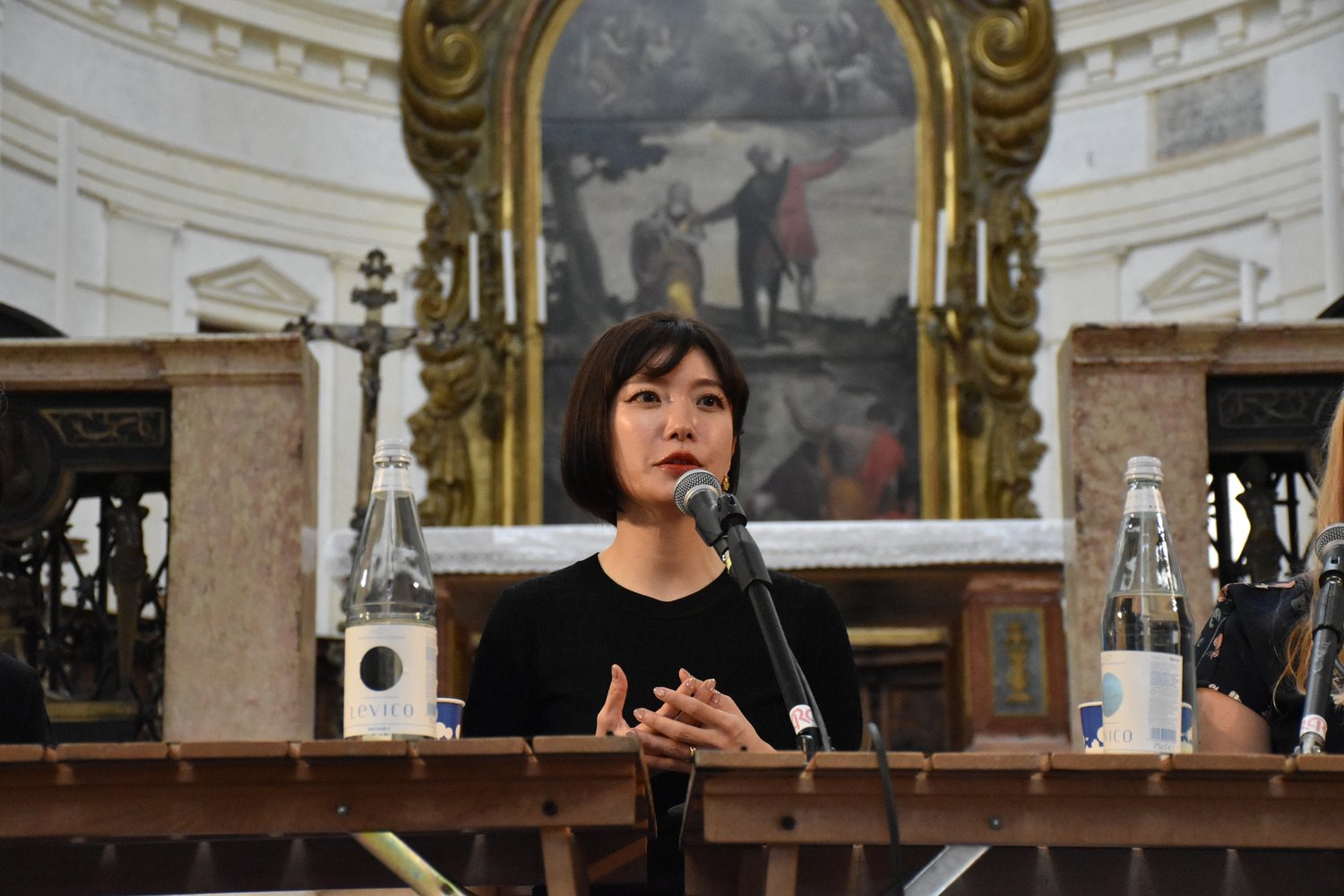



Ode to the Underdogs
Japanese cuisine is one of the simplest in the world, the only flavourings apart from the ingredients being miso or dashi. It is designed to let its ingredients be the thing you pay attention to. Mieko Kawakami applies the same formula to her writing, combining essentiality with sophistication. Simple, lucid, and intensely human.
Her interview with Giorgia Sallusti delights the audience. Kawakami is met with laughter and applause after every answer. Amused by the seemingly automatic reaction, she accepts it nonetheless with humbled grace.
Kawakami describes herself as a "working class author" who weaves a childhood of cheap omurice and dwindling monies in all she writes. "This really surprised audiences", Kawakami points out, "when Breasts and Eggs came out. That Tokyo could look like this". Sisters in Yellow, too, shows the gritty, lurid side of Tokyo, an aspect that would otherwise go unnoticed, neatly tucked away by many Westerners. For all her polite sunniness, a pessimism forged by the precarity of poverty breaks through. "I believe that even wealthy people who live a good life are destined to fall", she says.
Suppression in Japanese culture doesn’t manifest exclusively in quotidian society but also in the publishing world, especially when it prioritises Western appetites unattuned to Asian women’s experiences. Kawakami - ever the writer of underbellies - used this spotlight on male writers to her advantage. "The brighter the light", she says, "the stronger the shadow it creates". Kawakami does not pride herself on pandering to pre-existing genres and archetypes of Japanese literature. She deals in the obscure, hidden and often unnerving. "It’s tough, uncomfortable work", she says, "but it’s where my inspiration lies. I often find myself eavesdropping on peoples’ conversations in restaurants".
Literature and entertainment are two different things. Kawakami honours this distinction. She is staunchly atheist, rejecting the comfort that religion brings to many, she acknowledges. In the gilded walls of a church, Kawakami offers her own kind of salvation to the underdog: literature.